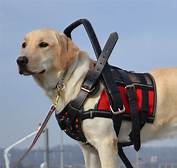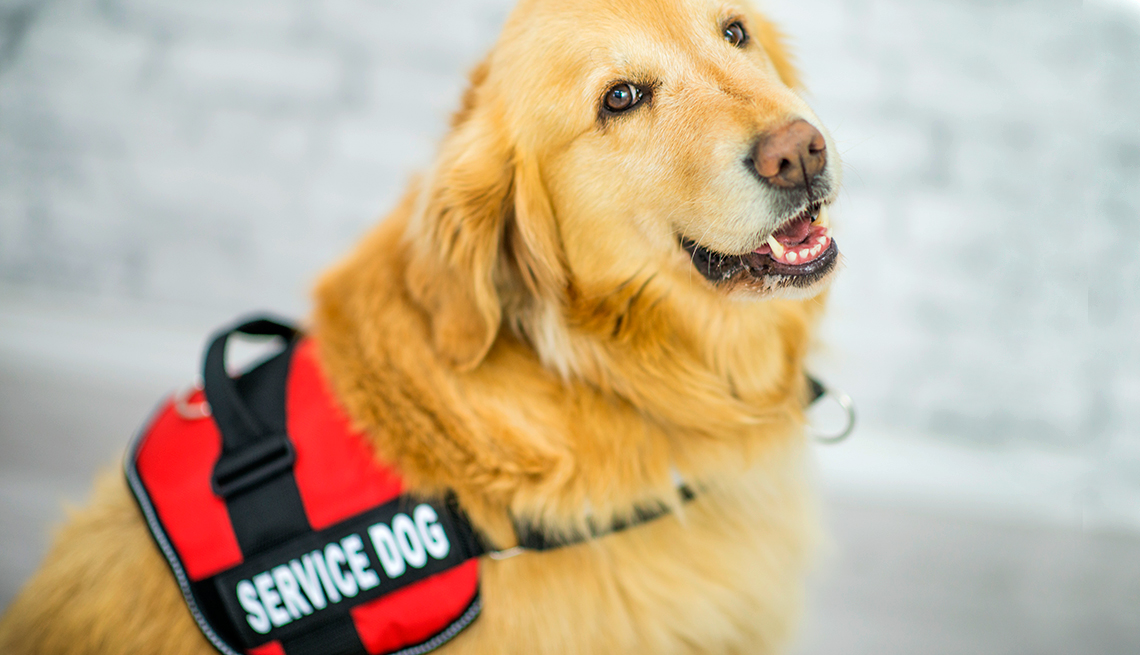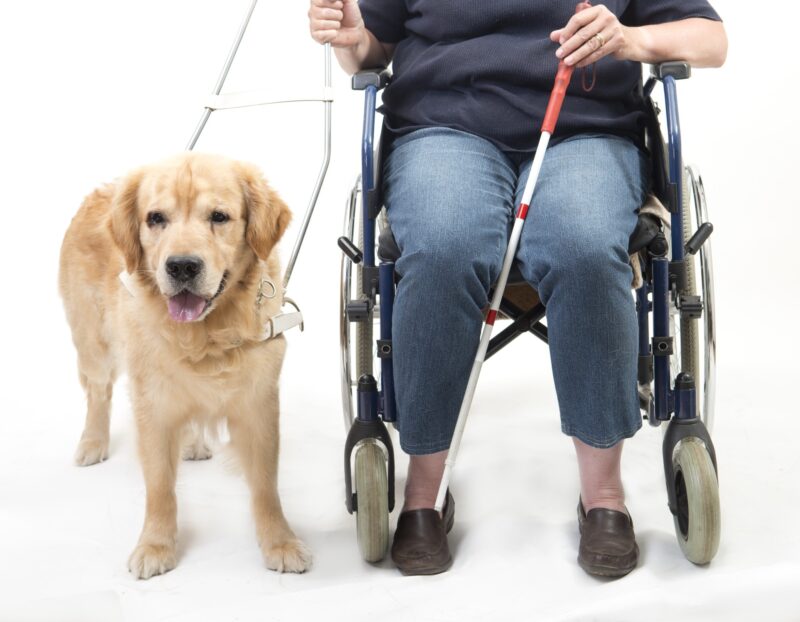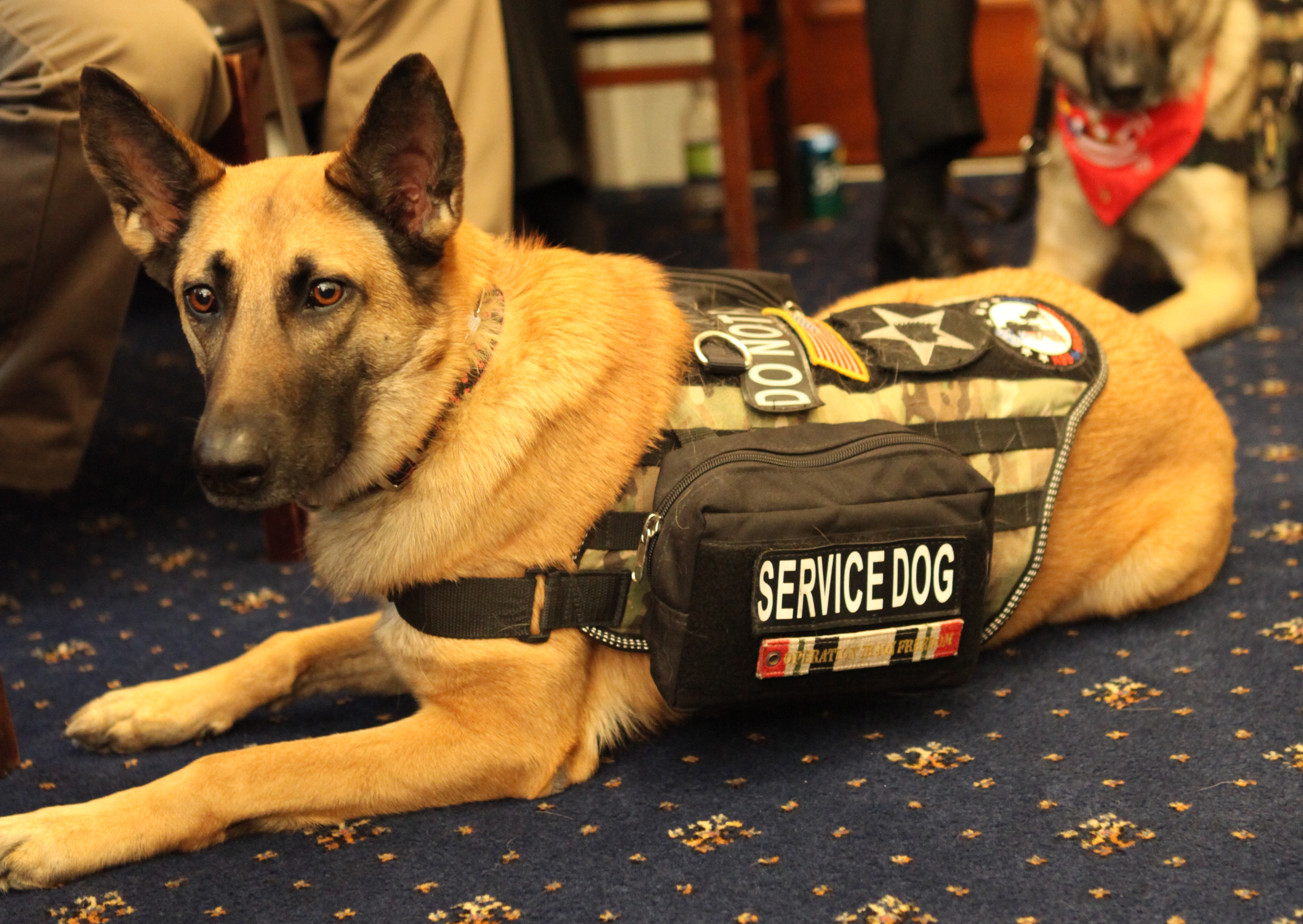Understanding Service Animals
"Most people with pets would say their 4-legged pals are their best friends, but for a growing number of individuals with specific physical, neurological or mental health challenges, they’re even more so: they are partners who make day-to-day tasks possible independently.
'Service dogs are specially trained to support individuals overcome obstacles & perform the physical tasks of their everyday life. They can provide tremendous physical & emotional benefits for their partners,' explains Royal Canin veterinary expert Dr. Allan Corber.
'The tasks that service dogs perform are critical for their partner, & may include turning lights on or off, retrieving necessary items, or summoning emergency help, if needed. Some service dogs are trained to support medical conditions, for example: alerting their partner that their blood sugar is at dangerous levels in a person with diabetes or detecting the imminent onset of a seizure in a person with epilepsy.


Because of these essential — & potentially life-saving — responsibilities, it’s important that people be aware of how to interact with service animals when in their presence.
'...it’s important to know that service dogs have a very important role & should never be approached, distracted or touched, while they’re at work,' Dr. Allan says.
'If a medical response dog is distracted by a well-intentioned person petting them, they may potentially miss an important change in their partner, which can be life-threatening.”
With over 25 years of veterinary experience... Dr. Allan Corber joined the scientific communications team at Royal Canin in 2018. He focuses on shelters, breeders, & getting kittens & puppies off to a healthy start...

Which Animals Can Be Used As Service Animals?
In Canada, only dogs (& sometimes miniature horses which are used as guide animals) can be used as service animals.
The most common breeds are German Shepherds, as well as Golden & Labrador Retrievers, but smaller breeds like shelties &smooth fox terriers are also used as 'hearing dogs' to alert their partner to a variety of sounds, such as doorbells, ringers, timers & alarms.
The Pacific Assistance Dogs Society (PADS), a Royal Canin partner, breeds, raises, & trains service & hearing dogs for individuals who need support in their everyday life.


At PADS, service dogs are trained to perform tasks like opening & closing doors, turning lights on & off, retrieving objects, carrying items (like groceries), & providing balance & stability to partners with mobility issues.
They’re also used to help veterans & first responders with PTSD, due to their calming & grounding effect.
'Many of us associate service animals with guide dogs trained to support people who are visually impaired. In fact, service animals work in many ways by supporting individuals with psychological injuries & seizures, as well as those with hearing loss,' Dr. Allan says.
'Service animals undergo intense & specialized training for specific situations to become well socialized to work alongside assistive devices like wheelchairs & walkers — they’re then equipped to perform highly trained skills to support the needs of their partner.'
How Are Service Animals Trained?
...the Canadian National Institute for the Blind (CNIB), delivers a variety of original programs & services that empower people affected by blindness to live their best lives.
It also raises, trains, & matches dogs with individuals who are blind or who have limited vision.


The training program, that utilizes both Golden & Labrador Retrievers as well as dogs that are a cross of the 2 breeds, starts when puppies are between 8 weeks & 4 months old. This lasts about a year, during which time the guide dogs learn to perform their role.
At around 18 months, the guide dogs are matched with individuals based on a mix of the dog’s personality, skills, & energy level, as well as the specific needs of their partner.
Service Animals And Nutrition
'To some, there is a perception that service animals are especially athletic, but that’s not really the case,' explains Dr. Allison Wara, a Royal Canin veterinarian & board-certified veterinary clinical nutritionist & scientific communications specialist who has worked with several service dog organizations.
'Service animals typically lead the same lifestyle as the individuals they serve. As a result, some service animals may have a decreased level of physical activity & therefore unique nutritional considerations.'..."


Ursula Leonowicz
Aug. 17/2020
https://nationalpost.com
Cute Critter Pics:
Weekly Chuckle:
Aug. 17/2020
https://nationalpost.com
Cute Critter Pics:
#StaySafe
#StayHome







No comments:
Post a Comment